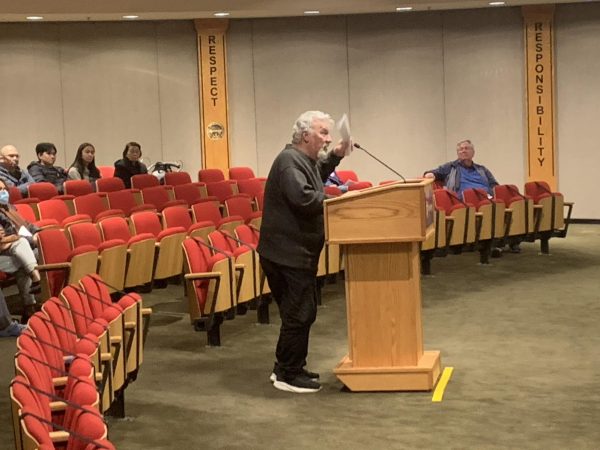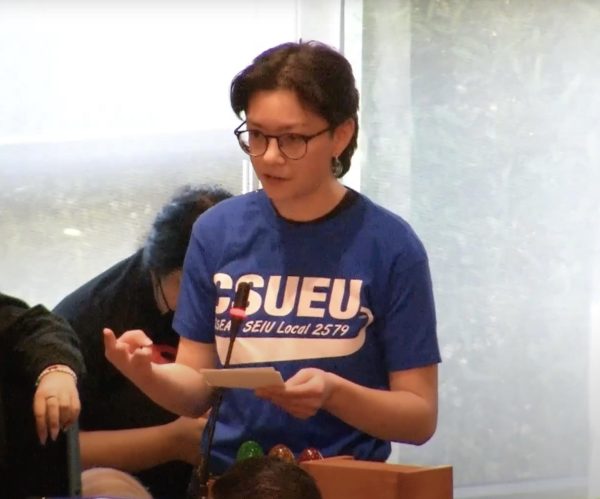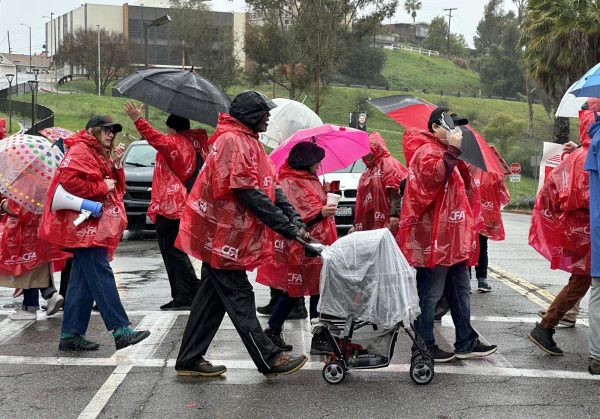Animal rights’ measure draws animal activists as some of its opponents
A measure aimed at improving farm animal conditions has drawn a host of opponents – and not just some farmers’ groups but certain animal activists as well.
Some of the activists say that the measure improves living conditions for breeding pigs and calves, but it appears to be a step back for egg-laying hens.
That’s because California’s current law, Proposition 2 that was adopted in 2008, requires enough room for hens to have their wings fully spread without touching the side of a cage.
Prop. 12 would give each egg-laying hen 1 square foot of floor space by 2020 – which is likely not enough for many to spread their wings, according to opponents.
The measure would ban cages altogether by 2022, but opponents note that until then, the hens will get much less space than required by current law.
The Humane Society of the United States sponsored the measure because they claim it’s an important step in ensuring animal rights and improving farm conditions.
Other opponents, such as the National Pork Producers Council, came out against the measure, claiming it would raise prices and lead to shortages of certain animal products.
Proposition 2 required that pregnant pigs, egg laying hens, and calves raised for veal only be confined in ways that allow the animals to fully spread their limbs, turn around freely, lie down, and stand up. Liquid egg sources were an exception to these requirements.
Proposition 12 includes eggs processed and sold in liquid forms and it would require that by 2020, each calf raised to be killed for its flesh must have 43 square feet of usable floor space. By 2022, each breeding pig must have 24 square feet of usable floor space.
Even animals or animal products from out of state would have to meet the requirements to sell in California.
The cost of meat and eggs would likely increase if the measure is passed because, among other reasons, farmers would have to remodel or build new housing for animals, according to the state’s Legislative Analyst.
In some cases, farmers may stop producing the products, which could also increase prices.
An organization that is for passing this proposition is the Humane Society of the United States. The University Times spoke with Public Policy Director for Farm Animal Protection, Chris Holbein.
Chris Holbein said the measure would improve animals’ lives.
“Prop. 12 would create the strongest law in the world protecting farm animals from cruel confinement. In addition to sparing millions of animals from being locked in cages so small they can barely move, Prop. 12 would also result in safer food for California families,” he said.
“This will result in safer food. Hens that are confined in cages are more likely to contract salmonella,” he told the UT.
Justina Adorno, a regular actor on “Grand Hotel” and an animal activist, said she is against this measure: “I think it’s a slap in the face to the people fighting for their rights…The whole situation is very misleading and very complicated…Instead of us paying more money for basically no benefit, I’m saying no until I see a bigger change.”
PETA, People for the Ethical Treatment of Animals, stated on its website that it is also against the measure because it doesn’t go far enough and most Californians want much more.
“We’re at a pivotal moment in the push for animal protection, for animal rights, and for an end to factory farming.”
Arius Mimms, a Baldwin Hills neighborhood resident, is another individual against the measure because he believes that most hens would remain caged for years.
“They need natural experience. Not solitude in a cage.”
















Martha S • Oct 26, 2018 at 8:10 am
I agree with Mr. Mimms that hens deserve more than solitude in a cage. And that’s exactly what Prop 12 would give them. The ballot measure PROHIBITS cages for egg-laying hens (as well as mother pigs and veal calves) and also ensures that they have vital enrichments like perches, dust bathing materials, and nesting boxes to lay their eggs. This is an incredible improvement to the conditions they’re forced to live in now, crammed in distressingly small cages with many other hens.
I think Justina’s decision to oppose Prop 12 until she sees a bigger change does nothing but subject these poor animals to further suffering. It leaves them in cages for years to come, instead of voting right now to end this inhumane practice. And I don’t know how she can say there is no benefit. Prop 12 would have positive benefits for the animals, food safety, the environment and farmers.
I’m voting YES on Prop 12 because I recognize the importance of taking a big step forward to increase the protection of laying hens, veal calves and mother pigs.